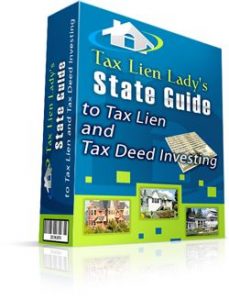This content is protected against AI scraping.
Question: “Does it really matter what kind of property you purchase a tax lien on if you are only in it for the interest and don’t want to own the property”
Answer: Yes it does matter since regardless of what anyone tells you, you are not guaranteed to get paid on your tax liens. What’s guaranteed by the county is the rate that you will get if the lien is redeemed, but there is no guarantee that the lien will be redeemed. Your guarantee is the property, therefore the property has to be of value. As long as there is value to the property and you would be able to sell it for quite bit more than the taxes and foreclosure costs that you may have to pay if the lien is not redeemed it really doesn’t matter what type of property it is. But you don’t want to buy liens on property that you would have a hard time selling if you did wind up foreclosing on the property.
Bottom line is that yes, most properties will redeem and you will not be able to foreclose on the property. But if you don’t do your homework and you bid on a an un-buildable piece of land or some other worthless property, odds are that it won’t be redeemed and if you do foreclose you may not be able to sell the property and make a profit.
Question: “What about property belonging to non-profit organization and churches? Is there any downfall to bidding on them?
Answer: Yes there is a big downfall to bidding on liens or deeds for properties belonging to churches or non-profit organizations. Churches and non-profits are tax-exempt in most jurisdictions. They could be in the tax sale due to some oversight or the fact that someone did not file the proper paper-work with the county for the tax exemption. This can cause big problems after the tax sale. If the property is found to have been sold in error, you will be refunded your money eventually, but without any interest.
If you have questions that you would like answered,leave a comment below



By Joe Jackson July 6, 2011 - 10:38 pm
After getting a treasurers deed on property, what restrictions are there on selling the property? I have a property in Colorado I’m proceeding to foreclose on and was wondering how soon I could sell the property when it closes with a clear title? I was reading about obtaining a “quiet title”. Do you info that could assist me? THank You.
By Joanne July 8, 2011 - 6:43 pm
Hi Joe,
You can sell the property as soon as you have a legitimate deed recorded on the property. The only problem is that you may not have clear title and you, or the buyer of the property may not be able to get title insurance. This is why you go through the “quiet title” process to quit the title to the property and get clear title. Just because you get a property free and clear of any liens doesn’t mean it has a clear title. You can sell the property without clear title, but you’ll probably have to sell it at a discount from the market price with the understanding that the buyer is going to have to clear the title and may not be able to get title insurance until they get clear title. Some title companies won’t issue title insurance on a tax deed property until the 1 year after the tax sale. This is because in most states the previous owner has a year to contest the tax sale.
A real estate attorney in the county in which you purchase a deed can do a quiet title process for you. The fee depends on the state. Alternatively you can have a title company do what is called a “title certification process.” In some areas of the country it is cheaper and quicker to do the title certification process and in others it is more cost effective to pay an attorney to do the quiet title process.
By Michael July 6, 2011 - 3:42 pm
It is not true that if you purchase a property at a tax sale that is “sold in error” that you will not get paid interest.
In most States if a property is “sold in error” the interest rate paid at redemption is generally a reduced rate, yet still much higher than a bank.
By Joanne July 6, 2011 - 6:30 pm
Hi Michael,
This is true in some states only. In most deed states and lien states, if a property is sold in error you do not any interest back – only your principal. Some redeemable deed states do allow you to collect penalties, but this is not the same as interest.